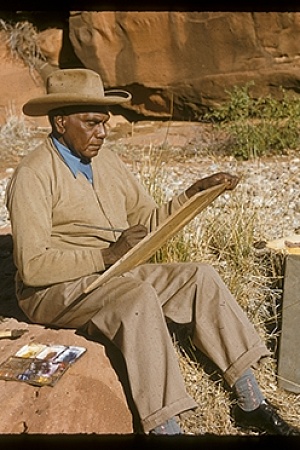Whither Waitangi?
From across the ditch, New Zealand can look like a place where settlers and Indigenous people have forged a successful, postcolonial modus vivendi. The image conceals more than it reveals. As in Australia, relations between Indigenous people and the state are fraught. At the November 2023 election, right-wing minority parties won electoral support by rejecting what they have characterised as special privileges to Māori. And a long-standing, bipartisan consensus on ‘biculturalism’ is breaking down.
At this year’s Waitangi Day celebrations, held annually to mark the signing of the Treaty of Waitangi between Māori rangatira (leaders) and the British Crown in 1840, the leaders of the new right-wing coalition government, led by Christopher Luxon, were drowned out when they spoke on the Treaty grounds in the Bay of Islands. Forceful challenges were issued by Māori leaders about the coalition’s policies regarding the Treaty, a proposed referendum on the Treaty’s principles, and the matter of co-governance. Protests and ongoing debate in mainstream and social media underline hard feelings about the issues at stake for a range of New Zealanders.
What is this all about? Many Māori are protesting a rolling back of policies undertaken by Jacinda Ardern’s Labour government. Those included a deepening of biculturalism through an expansion of the use of the Māori language in the public service and the design of a new compulsory history curriculum for schools that focuses on Māori history and colonisation. The Ardern government also pursued what were called ‘co-governance’ initiatives. In 2022, Labour created a separate, national Māori health authority. Perhaps most controversial was the ‘Three Waters’ policy to centralise ailing water infrastructure. Currently managed by local councils, the government designed regional advisory groups that would be established according to a fifty-fifty split in representation between local councils and mana whenua (local Indigenous authorities). Around seventeen per cent of New Zealanders identify as having some Māori ancestry, and a growing number of these identify with at least one iwi (tribe), though a smaller proportion of Māori are formal tribal members.
Continue reading for only $10 per month. Subscribe and gain full access to Australian Book Review. Already a subscriber? Sign in. If you need assistance, feel free to contact us.














Comments (2)
Ironically, this seems to be grounded in an idea that we are all of the same status and that no one group should be favoured over another, regardless of their inherited legacies. It would be tempting to imagine this is borne of the same principle as egalitarianism; that is, a fair go for all, but in this age it is more likely to be the product of simplistic concepts of the rights of the individual.
Leave a comment
If you are an ABR subscriber, you will need to sign in to post a comment.
If you have forgotten your sign in details, or if you receive an error message when trying to submit your comment, please email your comment (and the name of the article to which it relates) to ABR Comments. We will review your comment and, subject to approval, we will post it under your name.
Please note that all comments must be approved by ABR and comply with our Terms & Conditions.